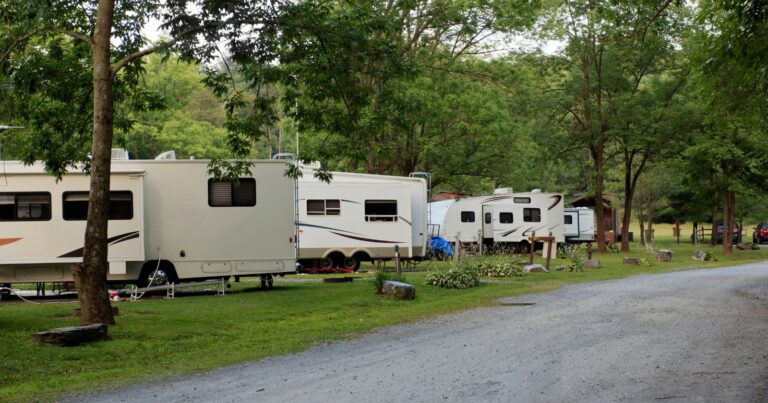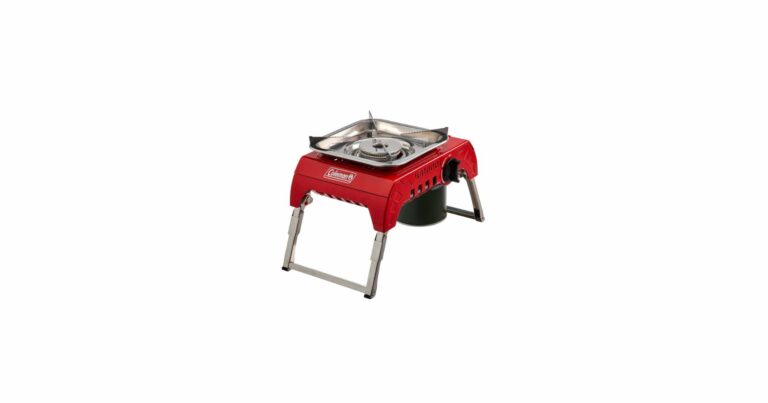Is Owning a Campground Really Profitable?
Are you dreaming of leaving the rat race behind and living a simpler life outdoors? Owning a campground may seem like an idyllic way to make that dream a reality. But is it actually a profitable business venture or just a romantic notion?
The truth is, owning a campground can be a solid income source if you go into it with realistic expectations. While it may not make you rich, running a campground can provide a comfortable living with the bonus of being surrounded by nature.
When considering purchasing a campground, the first step is to take a hard look at the numbers. Carefully analyze the current and past financials to get a true sense of profitability. Factor in not just revenue from site rentals, but also ancillary income like camp store sales. And don’t forget major expenses like maintenance, utilities, insurance and staffing. Crunching these numbers will tell you if the business cash flows and what financing you may need.
The next key factor is location, location, location. A campground needs certain natural attributes like lakes, rivers or mountains as well as proximity to major highways and population centers. Research traffic patterns in the area and within a reasonable drive. The more appealing the location, the better chance of attracting campers and making a profit.
Running a campground requires hard work, long hours and a range of skills from hospitality to plumbing. But for the right owner with realistic financial expectations and a true passion for the outdoors, a campground can provide not only income but also an active lifestyle in a beautiful setting.
The Reality of Campground Profits
The truth about profitability comes down to crunching the numbers realistically. While owning a campground can provide a comfortable living, it usually won’t make you rich overnight. You need to analyze revenues and expenses closely to determine if it cash flows.
Revenues
Income streams at a campground include:
- Site rentals for RVs, tents, cabins
- Camp store sales
- Equipment rentals
- Activity fees like tubing or climbing
Rates and capacity during peak season are key factors. A campground needs to fill most sites during summer weekends to turn a profit. Off-season and midweek occupancy are lower, but still contribute.
Ancillary revenues like the camp store and equipment rentals add up. Site rental should provide around 60-80% of total revenues.
Expenses
Operating costs take a big bite of revenues:
- Labor for reservation staff, cleaning, maintenance
- Utilities like electric, water, septic
- Insurance, taxes and licensing
- Ongoing maintenance and repairs
- Advertising and marketing
Mortgage payments and financing costs also impact the bottom line. Financing a campground purchase often requires 30-40% as a down payment.
Location Impacts Success
Choosing the right location is critical to profitability. To attract campers, a campground needs:
- Natural amenities – lake, river, mountain, beach, forest
- Accessibility – proximity to major highways and population centers
- Within a reasonable drive of key metro areas
Research traffic patterns and activity in the area. Being too remote reduces occupancy. High gas prices can discourage long distance trips.
Proximity to national parks or recreation areas is ideal. Campgrounds near tourist attractions see more volume.
Key Factors for Profitable Operation
Running a successful campground takes hard work and smart management:
- Offer great customer service – campers have high expectations
- Maintain excellent facilities and amenities
- Provide activities to keep campers engaged
- Use a reservation system to manage occupancy
- Create a community atmosphere to build loyalty
- Market effectively to attract new and returning campers
- Keep budgets and finances tightly managed
- Comply with all legal and regulatory requirements
Reality Check on Work-Life Balance
Owning a campground can allow an active lifestyle in nature, but it does require long hours and a range of skills. Key realities:
- Long days, especially in peak season – be prepared to work evenings and weekends
- Comfortable dealing with minor repairs and maintenance
- Experience in hospitality and customer service are a plus
- Willingness to handle garbage, cleaning bathrooms – not just scenic hikes
- Marketing and promotion will be an ongoing effort
- Financial management is critical
For the right owner with realistic expectations, a campground provides not only income but also the chance to live surrounded by the beauty of nature.
Steps to Buying an Existing Campground
If purchasing an established campground, follow these key steps:
- Consult with brokers experienced in campground sales
- Evaluate financials carefully – revenue, expenses, profit
- Inspect condition of facilities – maintenance needs?
- Visit in peak season – observe operations first-hand
- Have a lawyer review purchase contract
- Consider length of current management contract
- Review local market conditions and trends
- Understand regulatory requirements for ownership transfer
- Secure financing from SBA loans or private lenders
Building a New Campground – Major Undertaking
Constructing a new campground requires significant capital, zoning approval, permitting, and expertise. Key steps:
- Research location attributes and target markets thoroughly
- Assemble project team – attorney, engineers, architect
- Secure appropriate zoning and permits
- Have site evaluated for septic suitability
- Design layout meeting all state regulations
- Bid for reliable contractor experienced with campgrounds
- Secure financing for construction and initial operation
- Create startup marketing plan and pre-opening promotions
Building a profitable new campground from scratch can take 1-2 years and cost upwards of $2 million. Buying an existing campground reduces risk versus new construction.
FAQs About Owning a Profitable Campground
How much profit can I reasonably expect from a campground?
A well-run campground can generate a 10-15% profit margin on gross revenues. The profitability depends on size, location, amenities, and operational efficiency. Expect higher revenues but lower margin compared to an RV park.
What is the difference financially between a campground and RV park?
Campgrounds cater to tent campers and RVs, while RV parks focus just on RVs. RVs provide more revenue per site ($40-60 per day) than tents ($15-25 per day). However, RV parks have much higher infrastructure costs for large sites and full hookups.
What financing options are available to buy a campground?
Financing often involves SBA loans, bank loans, or private capital investors. A small business loan down payment is typically 20-40%. Good credit and a solid business plan are critical.
How much staff do I need to operate a campground profitably?
Staffing needs vary by size. A small campground may only require a manager, reservation clerk, and maintenance person. Larger campgrounds need additional reservation staff, housekeeping, groundskeepers and seasonal help.
What expertise or skills are most important to manage a campground profitably?
Key skills include hospitality experience, facility maintenance, customer service, budgeting, marketing/promotion, and technology proficiency. Experience in a service industry like hotels helps significantly.
Make the Dream a Reality
Owning a campground, while hard work, can provide not only income but a rewarding lifestyle for nature lovers. Succeeding financially requires analyzing the numbers objectively, choosing the right location, operating efficiently, and providing top-notch customer service. With careful planning and persistence, you can turn the dream into a rewarding reality.







